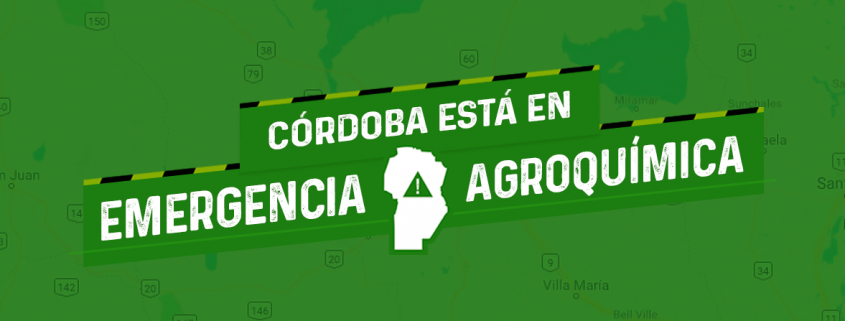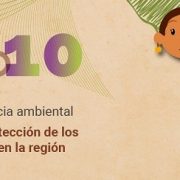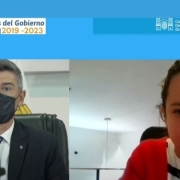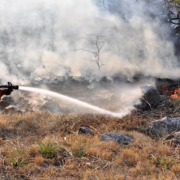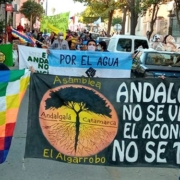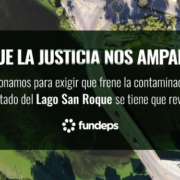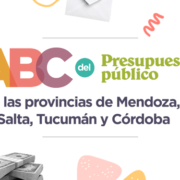We launched the website “Emergencia Agroquímica”
We launched a participatory website where environmental conflicts related to the use of agrochemicals in the province of Córdoba are made known, as well as providing legal tools and the possibility of making visible the existence of other conflicts of said nature.
“Below, we offer a google translate version of the original article in Spanish. This translation may not be accurate but serves as a general presentation of the article. For more accurate information, please switch to the Spanish version of the website. In addition, feel free to directly contact in English the person mentioned at the bottom of this article with regards to this topic”.
The website is structured based on three objectives. The first of them aimed at the visibility of socio-environmental conflicts related to the use of agrochemicals in the province of Córdoba. Second, it seeks to provide information and legal resources as necessary tools for the empowerment of communities and for the protection of their rights to health and a healthy environment. Third, it seeks to reinforce the visibility of conflicts through a collaborative platform in which new conflicts can be incorporated, thus expanding the content.
For such purposes, a conflict mapping was prepared based on an analysis of information compiled since 2008, mainly from newspaper articles and online publications related to 18 communities affected by the application of agrochemicals.
The examination of the data revealed relevant characteristics regarding the problem. In this way, it was observed that the vast majority of these conflicts arise from illegal or irregular fumigation, residues of agrochemicals deposited in prohibited places (uncultivated land and fields), fumigating machines that transit through urban centers, damage to biodiversity by the application of chemical products and as a consequence of all the irregularities mentioned, the serious problems in the health of the members of the fumigated communities.
Likewise, the survey revealed similar concerns and demands on the part of the communities regarding the application of agrochemicals. Thus, as a common denominator, these require: ordinances that establish Environmental Reserved Areas with respect to urban areas; the completion of the provincial law that regulates the requirements and minimum distances of application, the carrying out of health studies, among other claims. Other populations, as is the case of the town of Dique Chico, tend to an alternative to “agroecological reconversion” guiding the production from a sustainable and healthy perspective.
The survey work carried out demonstrates the “agrochemical emergency” that exists in numerous localities in the province of Córdoba. The use of agrochemicals without adequate control by the authorities, the non-compliance with current regulations regarding application distances, which also become ineffective for the protection of populations, are factors that not only affect the environment but also constitute a serious public health problem.
In this sense, the statistics show alarming data regarding the existence of certain diseases. For example, from the year 2017 onward, more than half of the deaths in the town of Canals, had their origin in a carcinogenic disease; or the case of the Monte Maíz locality in which the cases of deaths due to cancer exceed three times the average, in addition to being observed in all the localities surveyed numerous cases of malformations, respiratory diseases, spontaneous abortions and other infrequent diseases such as lupus, rematoidea arthritis, among others. These data shed light on the urgent attention that the problem deserves on the part of those who have the responsibility of adapting the controls in the application and to formulate a law respectful of the environment and health, paying attention above all to the needs of those populations most affected.
Access to the site Emergencia Agroquímica
Authors
Ananda Lavayén
María Laura Carrizo
Contact
Juan Bautista López, juanbautistalopez@fundeps.org

